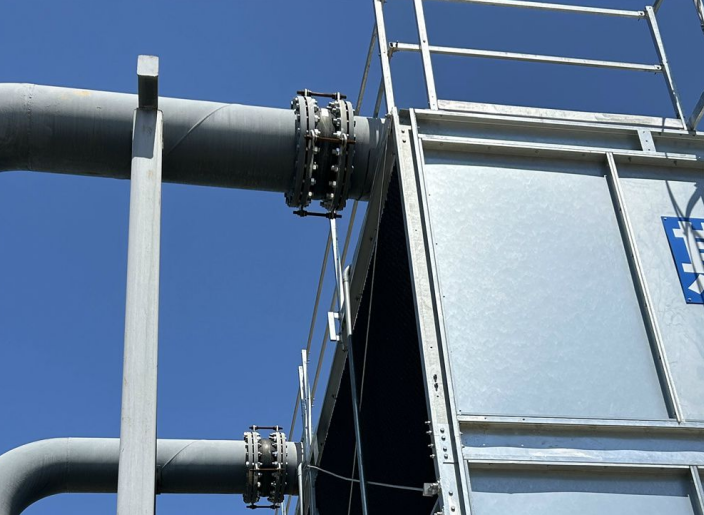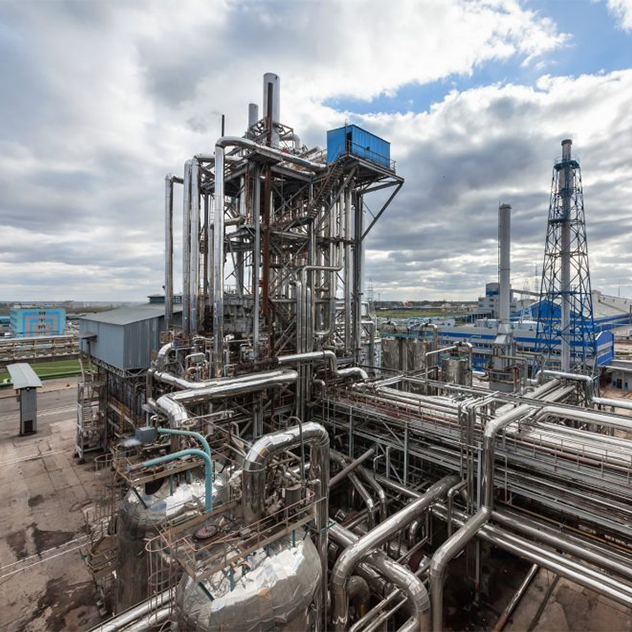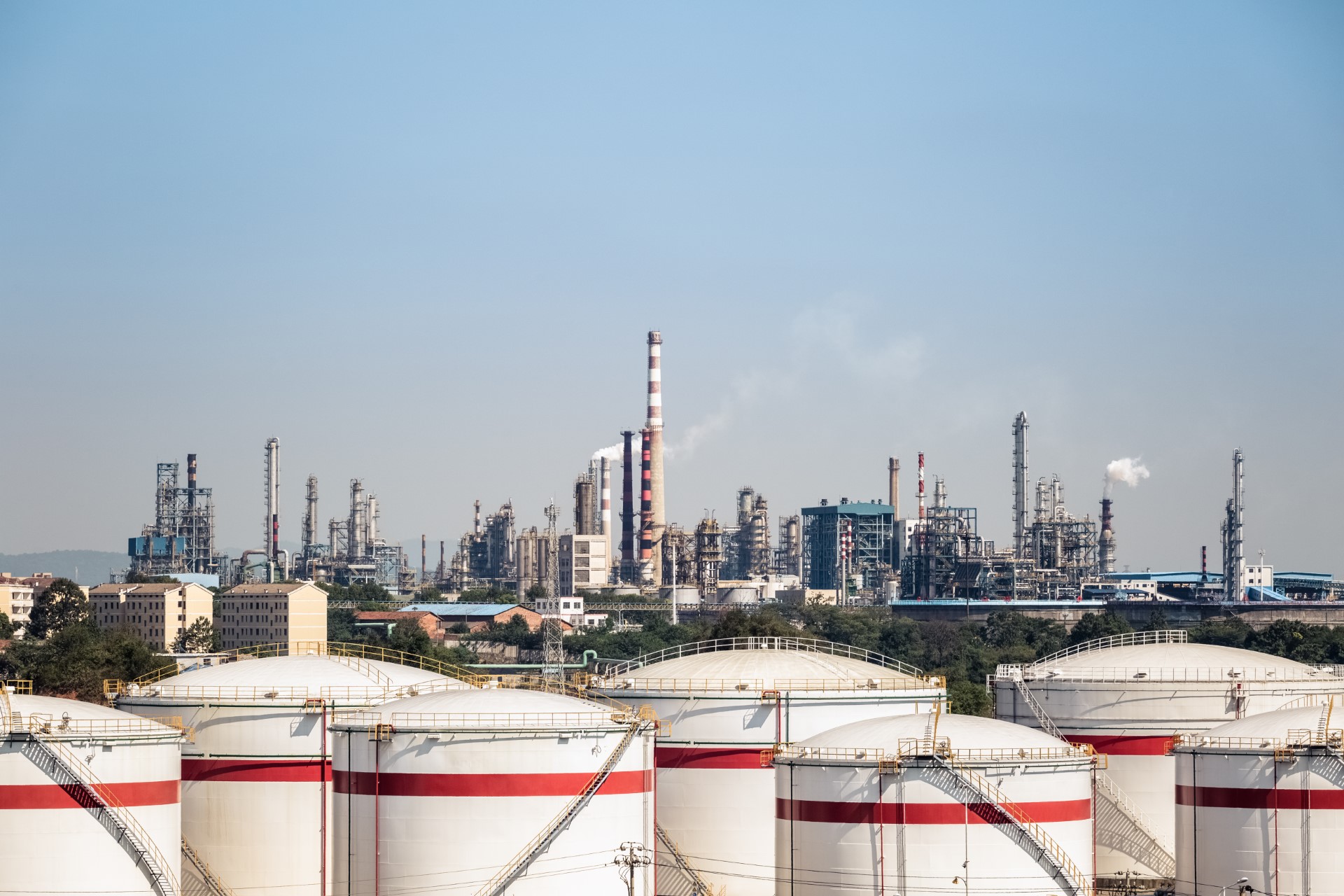CHEMICAL/PETROCHEMICAL CASE
In petrochemical facilities, expansion joints play a vital role in the piping systems linked to reactors, distillation columns, and heat exchangers. They accommodate thermal expansion and contraction resulting from temperature variations throughout different processing phases. To ensure durability and dependability, specialized materials that resist corrosive chemicals are frequently used. In petrochemical facilities, piping systems often endure high temperatures and high pressures. Vibration isolators effectively reduce vibrations generated by equipment, protecting the piping system from damage and ensuring stable fluid transport.
In the petrochemical industry, Songjiang rubber expansion joints and vibration isolators can provide high-quality solutions, as follows:

Rubber Expansion Joints Solution
High-Temperature and Corrosion-Resistant Materials: Select suitable rubber materials to ensure the durability of expansion joints in high-temperature and corrosive environments. For example, EPDM and fluorocarbon rubber are resistant to high temperatures and acidic or alkaline corrosion. NBR rubber is resistant to various hydraulic oils and petroleum corrosion. PTFE lining can withstand strong acids and alkalis.
Custom Design: Provide customized sizes and configurations based on the specific requirements of the piping system to suit different installation environments.
Vibration Isolators Solution
High-Efficiency Vibration Isolation: Provide specially designed vibration isolators that effectively reduce vibrations generated during equipment operation, protecting pipelines and equipment from damage.
Adaptability to Dynamic Loads: The design of the isolators should accommodate the dynamic load variations of petrochemical equipment, ensuring the stability and safety of the machinery.
Improved Operating Environment: By lowering vibration and noise levels, the operating environment is enhanced, increasing the comfort and safety of employees.


BASF China is upgrading its production system with metal hoses, rubber expasion joints, and rubber /spring vibration isolators for a comprehensive overhaul.

Spring isolators for the Lubrizol specialty chemicals project in Shanghai, aimed at upgrading and retrofitting vibration control in the factory's chemical piping system.

Provide wear-resistant and oil-resistant rubber joints for the mud piping system of China Petroleum Corporation (CNPC) Chuanqing Drilling Engineering Company.

LG Chem's Guangzhou factory is undergoing a complete overhaul of its ducting system, utilizing corrosion-resistant isolators, which provide excellent vibration reduction.
Other Projects Involved by Songjiang - Reference List
- The Xinjiang Zhongneng sewage treatment and reclaimed water reuse project uses stainless steel 316L flange EPDM rubber expansion joints.
- Shuyang Keze New Materials Company’s refrigeration station project utilizes our factory’s low-temperature resistant rubber expansion joints and high compensation vibration isolators.
- The Leshan Salt-Phosphate Chemical Circular Industry’s 300,000 tons per year ion-exchange membrane caustic soda expansion and capacity enhancement project utilizes large-diameter rubber joints, with sizes ranging from 36 inches to 52 inches.
- The Standa Electric Co., Ltd. uses all-stainless steel 304 corrugated compensators for its project with an annual production capacity of 10,000 tons of high-precision ultra-thin lithium battery copper foil.
- The Ningbo Fuchish Chemical 701 project utilizes Songjiang American standard rubber joints, with one end featuring an American standard 150-pound pressure flange and the other end a German standard 16 bar pressure flange.
- The Jinkai Chemical’s million-ton phosphate project uses a batch of DN1200 rubber joints resistant to weak acids, primarily for the water circulation main pump pipeline of the cooling tower.
- The Owens Corning China fiberglass project utilizes rubber joints, with Songjiang Group providing high-quality rubber joints and vibration isolators.
- The Fujian Baihong Polyfiber project, with an annual production capacity of 200,000 tons of industrial polyester filaments, utilizes corrosion-resistant rubber joints for its chemical wastewater circulation system.
-
Viet Nam Baikai elastic weaving project was newly built, using high-volume elastic rubber joints and shock absorbers to supply the factory pipeline systems
-
The Central Asia Gas Pipeline’s Uzbekistan section employs a large quantity of low-temperature resistant and UV-resistant rubber joints for its pipeline system.

